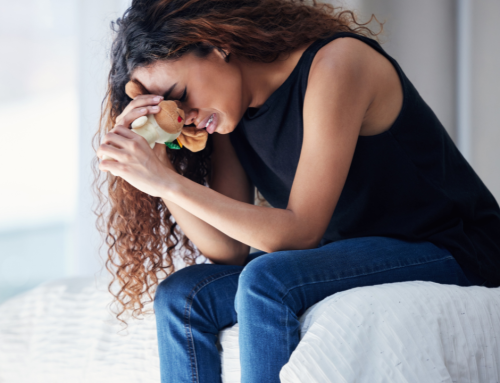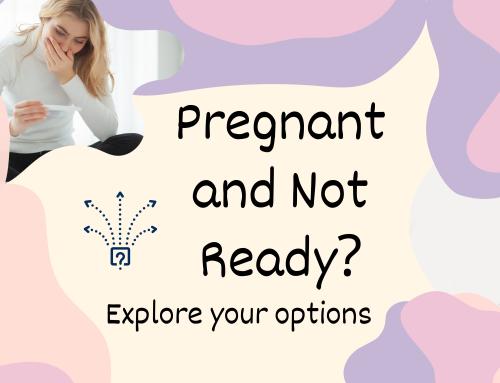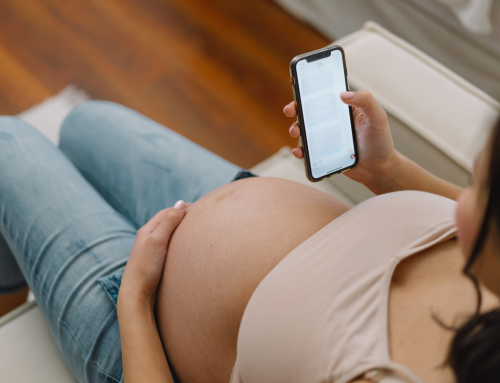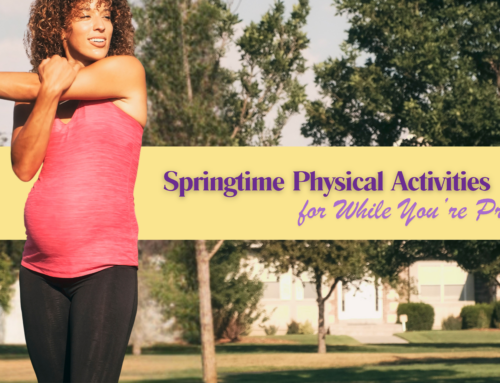Postpartum Depression or The Baby Blues
Postpartum depression (PPD) and the baby blues are two closely related experiences after the birth of a baby. However, they are two different concepts. The baby blues can be a common experience for mothers 1-2 weeks postpartum. The baby blues can be a result of the hormonal shift in a mother’s body, lack of sleep, stress, and/or fatigue. New young mothers might feel overwhelmed or alone with this significant change. The baby blues usually begin immediately after birth and last about a week or two. However, if these feelings begin to worsen and continue longer than a couple of weeks, the new mother could be suffering from postpartum depression.
Postpartum depression is a much more serious experience and should not be ignored. When deciphering baby blues from postpartum depression, you might be confused. The two have common symptoms. The symptoms of postpartum depression can easily be mistaken for baby blues, especially at the beginning of a new mother’s postpartum journey. The main difference between the two is that postpartum depression lasts longer and contains higher severity, such as suicidal thoughts, and lack of interest in caring for your newborn. There are no specific reasons as to why new mothers develop this depression, but the issue is twice as more common among new young mothers.
What To Do
New young mothers are experiencing a significant change in their life. Things may seem to be changing at a speed that can seem too fast and become overwhelming. If you are a young new mother, it’s important to not be so hard on yourself and to focus on what’s best for yourself and your baby. Below are some ways to cope with and overcome this depression:
- Exercise when you can
Even if it’s only for 15 minutes a day, it’s something that can help relieve some stress. Take out the stroller and go for a walk with the baby around the neighborhood. It will get you out of the house, give you a chance to breathe in some fresh air, and enjoy an activity with your newborn.
- Try to maintain a healthy diet
Eating a nutritious diet will not cure PPD. However, fueling our bodies with good nutrients makes us feel well overall. A wholesome diet is a start to a healthier and happier lifestyle.
- Make time for YOU
You might feel trapped within your responsibilities. It’s important to make time for yourself. Take your parent’s offer up on babysitting, let your partner take a shift, let your trustworthy friends take the baby out for an auntie-date, etc. Taking some time for yourself is healthy and nothing to feel ashamed of. It will leave you coming back more refreshed and missing your newborn.
- Avoid Isolating Yourself
It’s important to not isolate yourself especially when you are feeling alone. Talking about your feelings can help shift your mood positively. Get out there and talk to your friends, family, other mothers, counselors, support groups, etc. You’re not alone and there are people who want to see you happy. Take advantage of your support system and utilize other support groups.
Be Proud Of Yourself
As a new young mother, you are taking on a lot of responsibility. You nurtured a baby in your womb for nine months, gave birth, and are mothering a newborn baby. Give yourself credit for the things you’ve accomplished and celebrate your victories along the way. Be proud of yourself and remember you are a strong mother.
Other Related Articles:
(Saving money while pregnant)
https://pregnancyadoptionoptions.com/5-money-saving-pregnancy-tips/
(Pregnancy and College)
https://pregnancyadoptionoptions.com/pregnancy-and-college/






